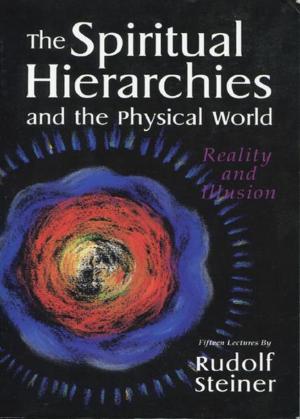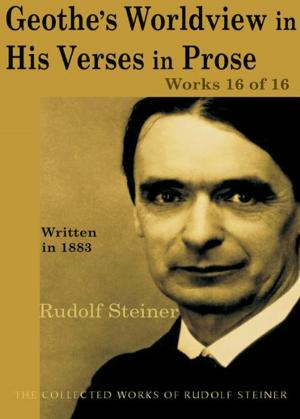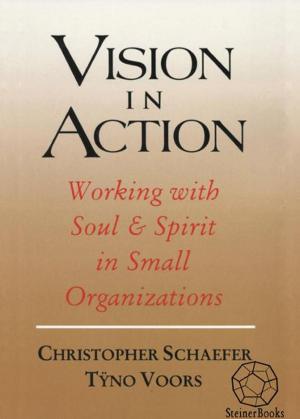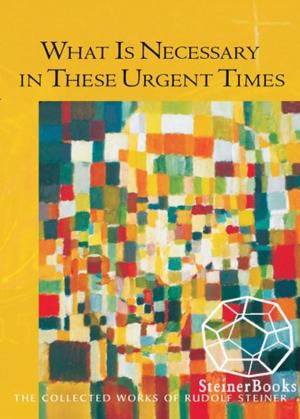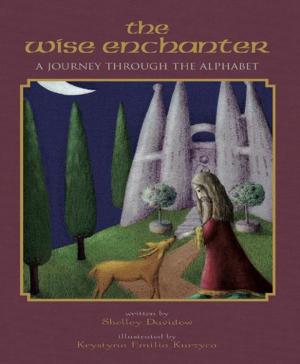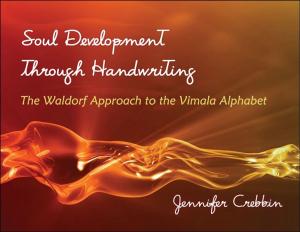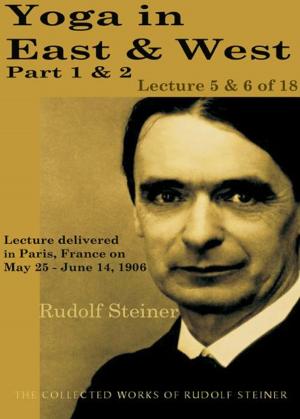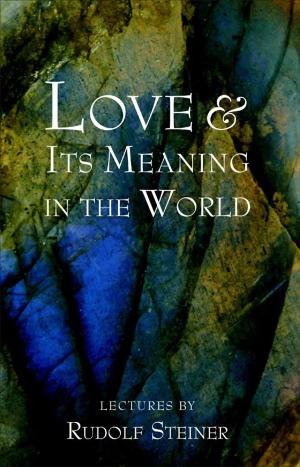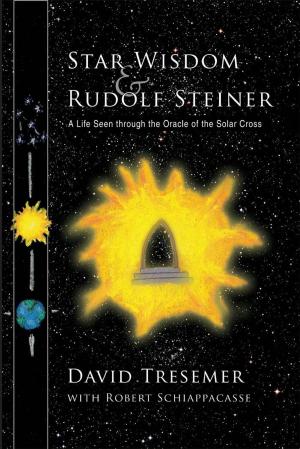| Author: | Robert Powell; Kevin Dann | ISBN: | 9781584204510 |
| Publisher: | SteinerBooks | Publication: | November 1, 2010 |
| Imprint: | Lindisfarne Books | Language: | English |
| Author: | Robert Powell; Kevin Dann |
| ISBN: | 9781584204510 |
| Publisher: | SteinerBooks |
| Publication: | November 1, 2010 |
| Imprint: | Lindisfarne Books |
| Language: | English |
Like the prostrate pilgrim on the front cover-with his head protruding through the vault of heaven to discern the working of the cosmos-humanity has for many centuries employed astrology to penetrate the mystery of the stars relationship to human destiny. Based on decades of research into both astrological reincarnation and the history of astronomy/astrology, The Astrological Revolution unfolds this mystery. The reader is invited to call into question the basis of modern astrology. This basis, the tropical zodiac, emerged through Greek astronomers from what was originally a calendar dividing the year into twelve solar months. The fact that ninety-eight percent of Western astrologers use the tropical zodiac means that contemporary Western astrology is based on a calendar system that does not reflect the actual location of the planets against the background of the starry heavens. In other words, most astrologers in the West are practicing a form of astrology that no longer embodies the reality of the stars.What is needed to bring astrology (which means the science of the stars) back into alignment with the stars in the heavens? The first step in an astrological revolution that leads to true astrology is to recognize the sidereal zodiac (sidereal meaning related to the stars). In antiquity, the Babylonians, Egyptians, Greeks, Romans, and Hindus used the sidereal zodiac, and today Hindu (Vedic) astrologers still use the sidereal zodiac. Based on recognition-through the newly discovered rules of astrological reincarnation, that the sidereal zodiac presents an authentic astrological zodiac-a new practice of astrology is possible that offers tools to reestablish a wisdom-filled astrology in the modern world. This new astrology, based on the sidereal zodiac, is similar to the classic sidereal form but in a modern form, as that practiced by the three magi, who-prompted by the stars-journeyed to Bethlehem two thousand years ago.Drawing on specific biographical examples, The Astrological Revolution reveals new understandings of how the starry heavens work into human destiny. For instance, the book demonstrates the newly discovered rules of astrological reincarnation through the previous incarnations of composer Franz Schubert and his patron Joseph von Spaun-respectively, the Sultan of Morocco, Abu Yusuf Yaqub, and his erstwhile enemy, Alfonso X, the Castilian King known as El Sabio (the Learned), along with their sidereal horoscopes. Rudolf Steiners biography is also considered in relation to the sidereal zodiac and the rules of astrological reincarnation.After reestablishing the sidereal zodiac as a basis for astrology that penetrates the mystery of the stars relationship to human destiny, the reader is invited to discover the astrological significance of the totality of the vast sphere of stars surrounding the Earth. The Astrological Revolution points to the astrological significance of the entire celestial sphere, including all the stars and constellations beyond the twelve zodiacal signs. This discovery is revealed by studying the megastars, the most luminous stars of our galaxy, illustrating how megastars show up in an extraordinary way in Christs healing miracles by aligning with the Sun at the time of those miraculous events. The Astrological Revolution thus offers a spiritual-yet scientific-path of building a new relationship to the stars.
Like the prostrate pilgrim on the front cover-with his head protruding through the vault of heaven to discern the working of the cosmos-humanity has for many centuries employed astrology to penetrate the mystery of the stars relationship to human destiny. Based on decades of research into both astrological reincarnation and the history of astronomy/astrology, The Astrological Revolution unfolds this mystery. The reader is invited to call into question the basis of modern astrology. This basis, the tropical zodiac, emerged through Greek astronomers from what was originally a calendar dividing the year into twelve solar months. The fact that ninety-eight percent of Western astrologers use the tropical zodiac means that contemporary Western astrology is based on a calendar system that does not reflect the actual location of the planets against the background of the starry heavens. In other words, most astrologers in the West are practicing a form of astrology that no longer embodies the reality of the stars.What is needed to bring astrology (which means the science of the stars) back into alignment with the stars in the heavens? The first step in an astrological revolution that leads to true astrology is to recognize the sidereal zodiac (sidereal meaning related to the stars). In antiquity, the Babylonians, Egyptians, Greeks, Romans, and Hindus used the sidereal zodiac, and today Hindu (Vedic) astrologers still use the sidereal zodiac. Based on recognition-through the newly discovered rules of astrological reincarnation, that the sidereal zodiac presents an authentic astrological zodiac-a new practice of astrology is possible that offers tools to reestablish a wisdom-filled astrology in the modern world. This new astrology, based on the sidereal zodiac, is similar to the classic sidereal form but in a modern form, as that practiced by the three magi, who-prompted by the stars-journeyed to Bethlehem two thousand years ago.Drawing on specific biographical examples, The Astrological Revolution reveals new understandings of how the starry heavens work into human destiny. For instance, the book demonstrates the newly discovered rules of astrological reincarnation through the previous incarnations of composer Franz Schubert and his patron Joseph von Spaun-respectively, the Sultan of Morocco, Abu Yusuf Yaqub, and his erstwhile enemy, Alfonso X, the Castilian King known as El Sabio (the Learned), along with their sidereal horoscopes. Rudolf Steiners biography is also considered in relation to the sidereal zodiac and the rules of astrological reincarnation.After reestablishing the sidereal zodiac as a basis for astrology that penetrates the mystery of the stars relationship to human destiny, the reader is invited to discover the astrological significance of the totality of the vast sphere of stars surrounding the Earth. The Astrological Revolution points to the astrological significance of the entire celestial sphere, including all the stars and constellations beyond the twelve zodiacal signs. This discovery is revealed by studying the megastars, the most luminous stars of our galaxy, illustrating how megastars show up in an extraordinary way in Christs healing miracles by aligning with the Sun at the time of those miraculous events. The Astrological Revolution thus offers a spiritual-yet scientific-path of building a new relationship to the stars.

